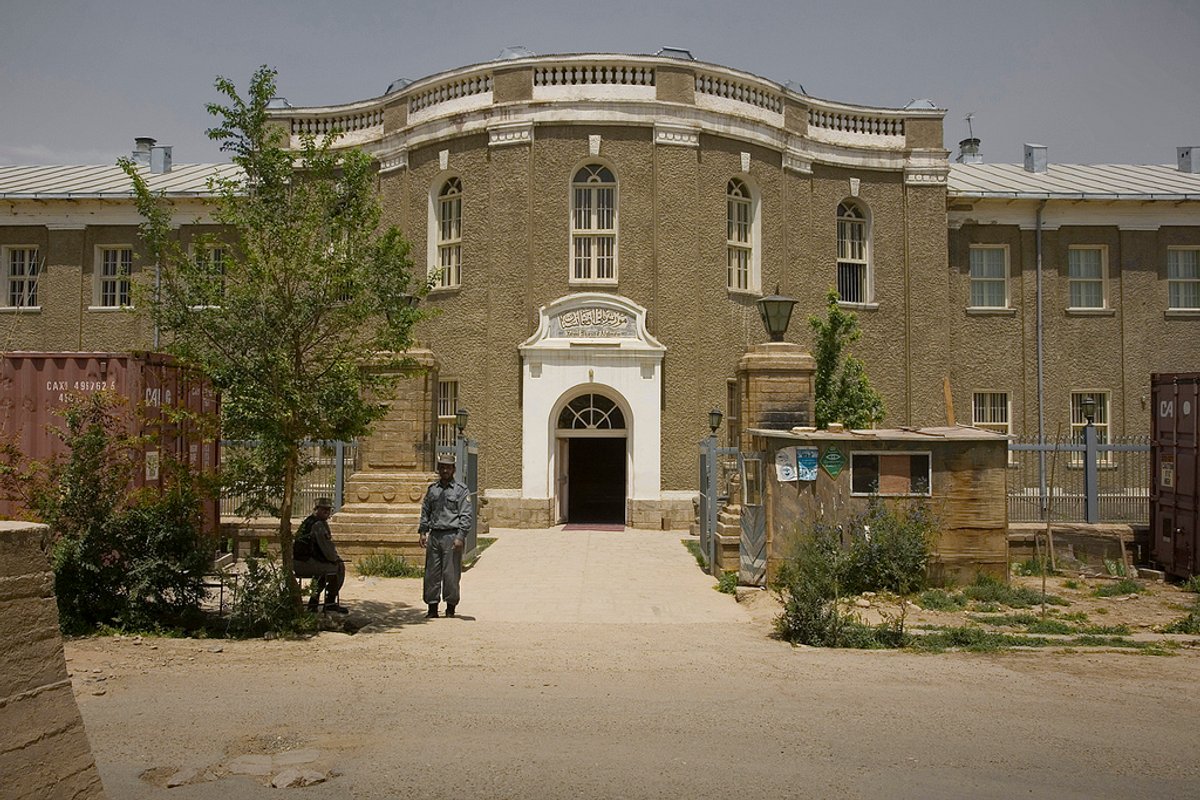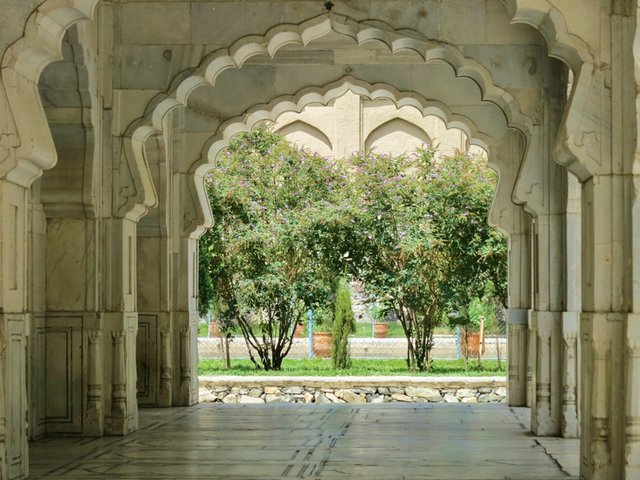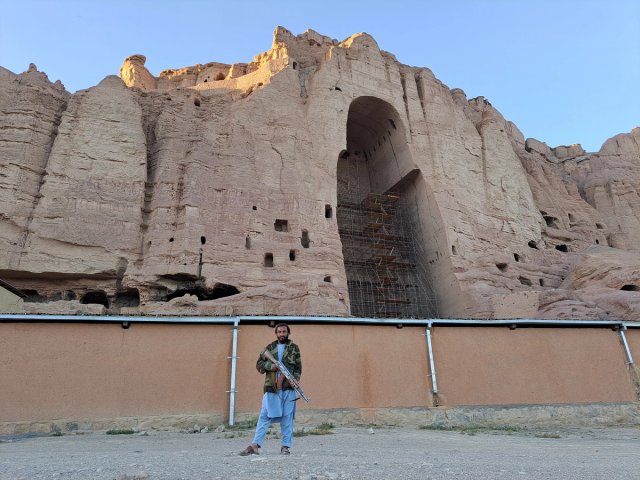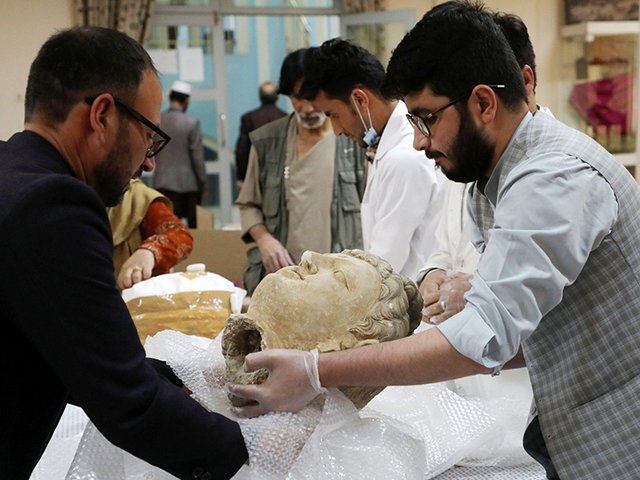The National Museum of Afghanistan in Kabul has reopened for the first time since the Taliban seized power in the capital on 15 August. But according to the Associated Press (AP), there are frequent power outages, staff remain unpaid and Taliban militia are acting as guards.
The museum, located in the southwest of the capital, houses artefacts dating from the Paleolithic period (around 44,000 to 12,000 BC) to the 20th century. Around 50 to 100 people visit the museum each day; opening hours are given on the website (8am to 3.30pm) though it is unclear when this was last updated. The director of the museum, Mohammad Fahim Rahimi, did not respond to a request for comment.
Images obtained by AP shows a Taliban fighter taking pictures of artefacts on his mobile phone on 6 December; another photograph shows museum conservator Mohammad Name Noorzai restoring an ancient ceramic object.
The Khaama press agency, which is based in Afghanistan, reports that “the Ministry of information and culture of the Taliban acknowledged that they are committed to preserving the cultural sites and historic antiquities and monuments of Afghanistan”.
But the last time Kabul was under the control of the Taliban 20 years ago, Afghanistan lost an estimated half of its cultural heritage. Sharia law practiced by the Taliban forces forbids the depiction of icons, human bodies and other deities, which in the past has resulted in the systematic erasure of minorities and women, who are now required to be chaperoned by male guardians and don the veil.
In 2001, the Taliban destroyed part of the sixth-century Buddhas carved into a cliff in Bamyan valley, central Afghanistan Some commentators still fear that cultural heritage could once again face threats of targeted destruction. In August, the museum released a statement saying that the “chaotic situation [Taliban takeover] causes a huge concern about the safety of museum’s artefacts and goods”.
Meanwhile, a group of Afghan artists and creative figures have delivered a letter to the UK Prime Minister Boris Johnson and other world leaders pleading to be rescued. The open letter, which has been published in French, Farsi, English and German, outlines Afghan artists’ work over the last two decades to revive the arts and culture scene in their country.





